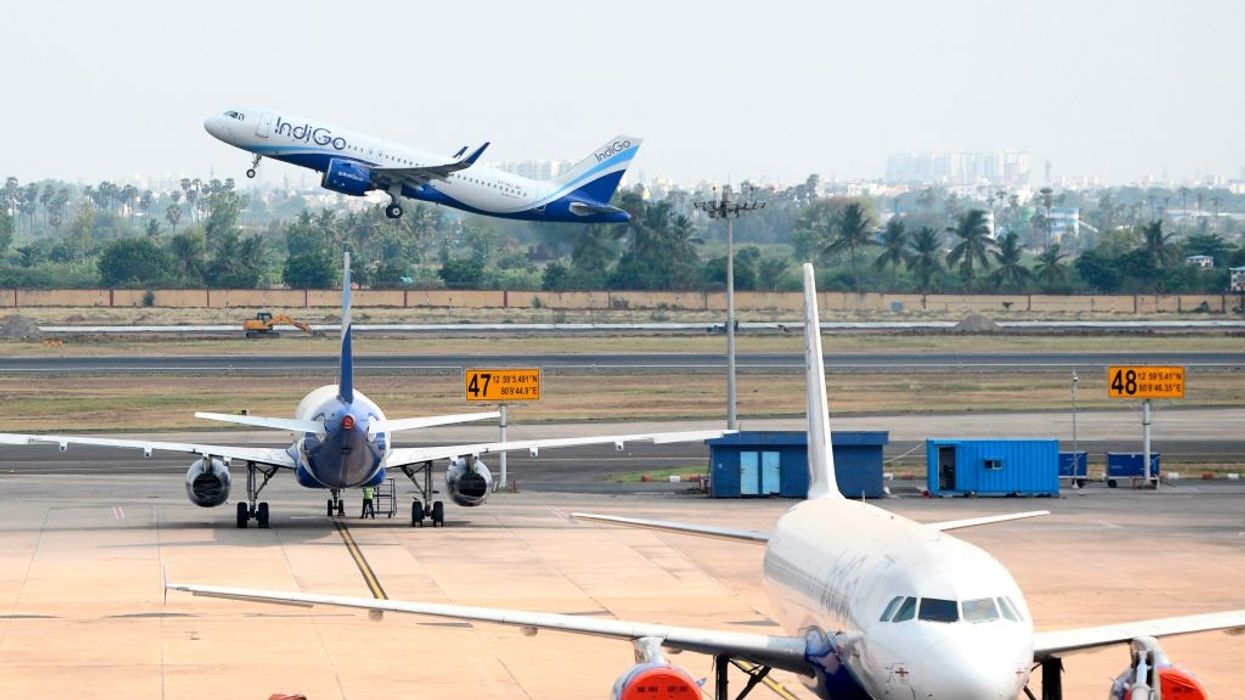INDIAN low-cost carrier IndiGo is in negotiations to acquire more than 500 passenger jets with both Boeing and its current supplier Airbus, potentially breaking a record set by domestic rival Air India a few weeks ago, according to industry insiders.
IndoGo, India's largest airline, has been an exclusive buyer of narrow-body jets from Airbus. Last month, French finance minister Bruno Le Maire said that the airline was close to ordering several hundred planes from the European firm.
But negotiations to keep renewing the budget carrier's fleet from the end of the decade have also broadened to include mid-sized wide-body jets, sparking a contest between Boeing's 787 Dreamliner and the upgraded Airbus A330neo, the sources said.
IndiGo, owned by InterGlobe Aviation, is also comparing the A320neo with the Boeing 737 MAX as it weighs a major new order for narrow-body jets, they added. The split between wide- and narrow-body jets was not immediately clear.
An IndiGo representative said that the airline is constantly in talks with manufacturers as it plans its next phase of growth. "However, we haven't finalised anything till now."
Airbus declined to comment on any talks, saying it is "always in contact with existing and potential customers". Boeing had no immediate comment.
IndiGo, which counts a 55 per cent share of the domestic market, is widely expected to maintain Airbus as its supplier of narrow-body jets to squeeze out further economies of scale.
It is already one of Airbus's largest customers and has so far ordered a total of 830 Airbus A320-family jets of which 488 are still to be delivered.
But Indian analysts say Airbus will face a tougher fight for the wide-body order. In a departure from its single-aisle strategy, IndiGo last month began international operations with a Boeing 777, its first wide-body aircraft, taken from codeshare partner Turkish Airlines, which provides the pilots.
Efforts by Indian carriers to keep pace with the world's fastest-growing aviation market, serving what is soon to become the largest population, have sent industry records tumbling even though manufacturers are struggling to meet output goals.
Tata-owned Air India last month sealed deals for a record 470 jets from Airbus and Boeing and plans to lease another 25 for immediate needs, bringing the acquisition to 495 aircraft.
The head of budget airline Akasa Air said last month it would place a "substantially" large order for new narrowbody jets this year on top of an existing Boeing 737 MAX order.
Industry publication CAPA reported last month that IndiGo was looking at around 500 jets as Air India closed its own deal.
Indigo began operations in 2006 and flies to more than 75 Indian cities including to remote destinations in the country's northeast. It also flies internationally to Dubai, Singapore, Hanoi and Maldives and is expanding into Europe through its partnership with Turkish Airlines.
(Reuters)





